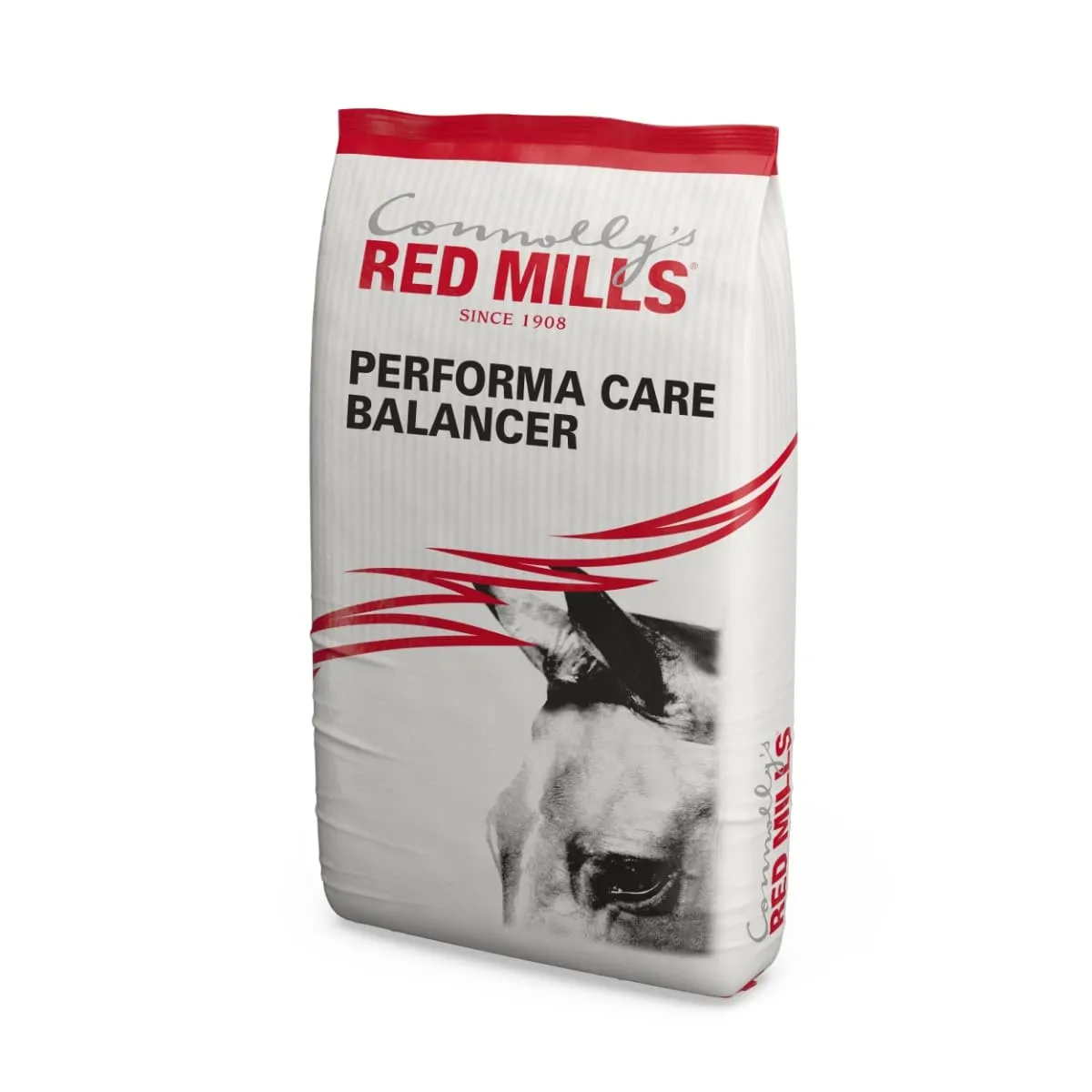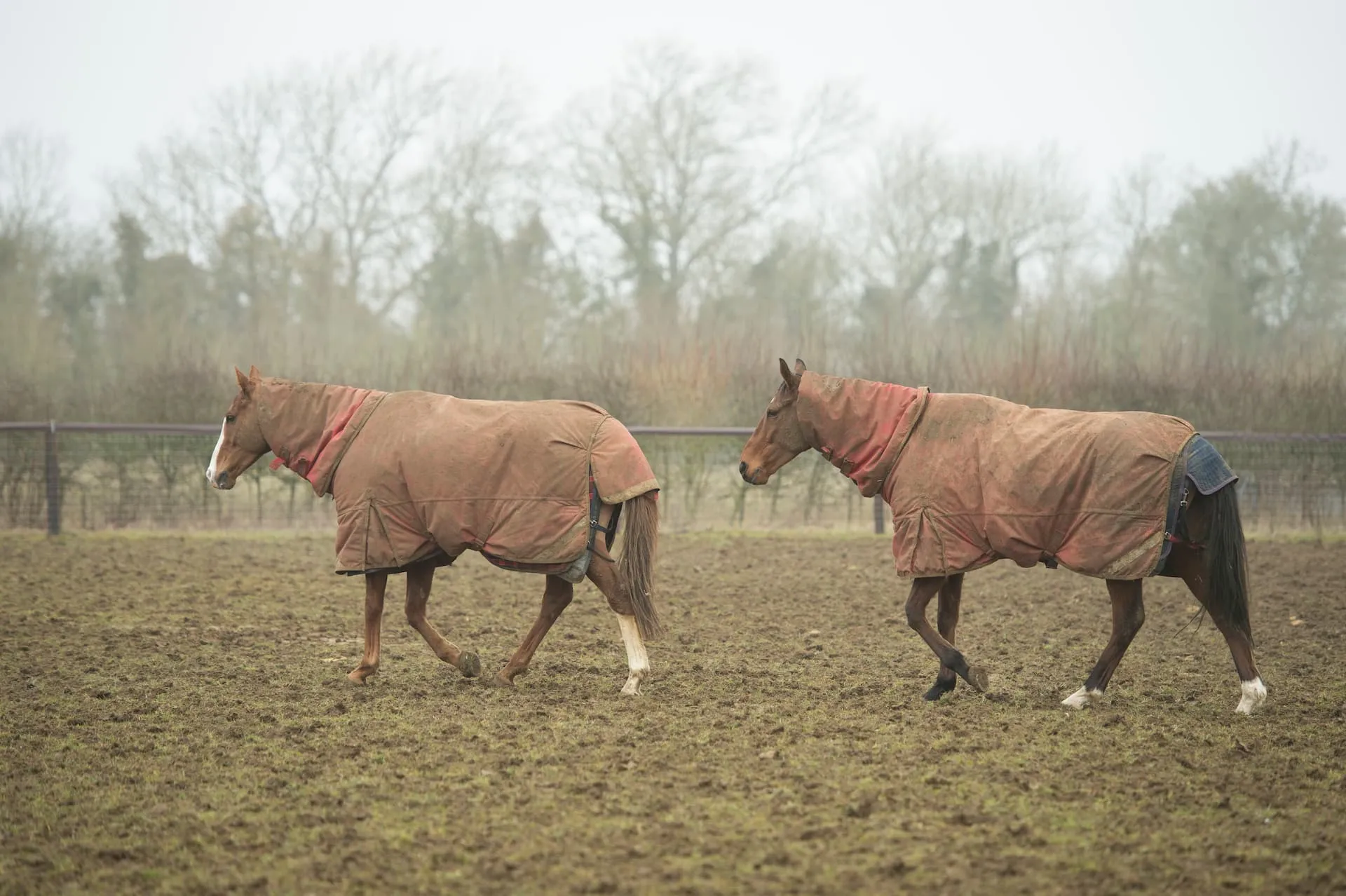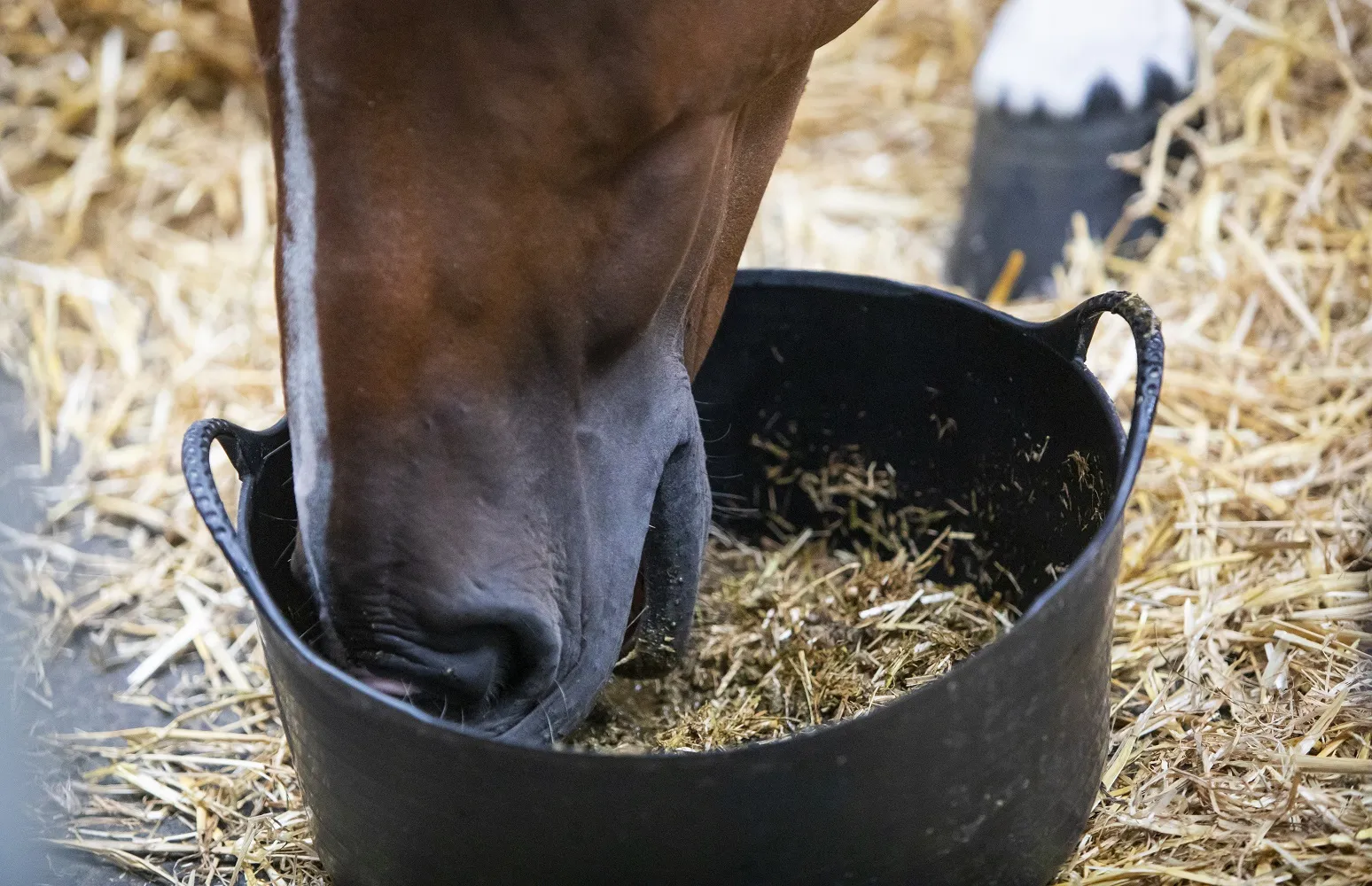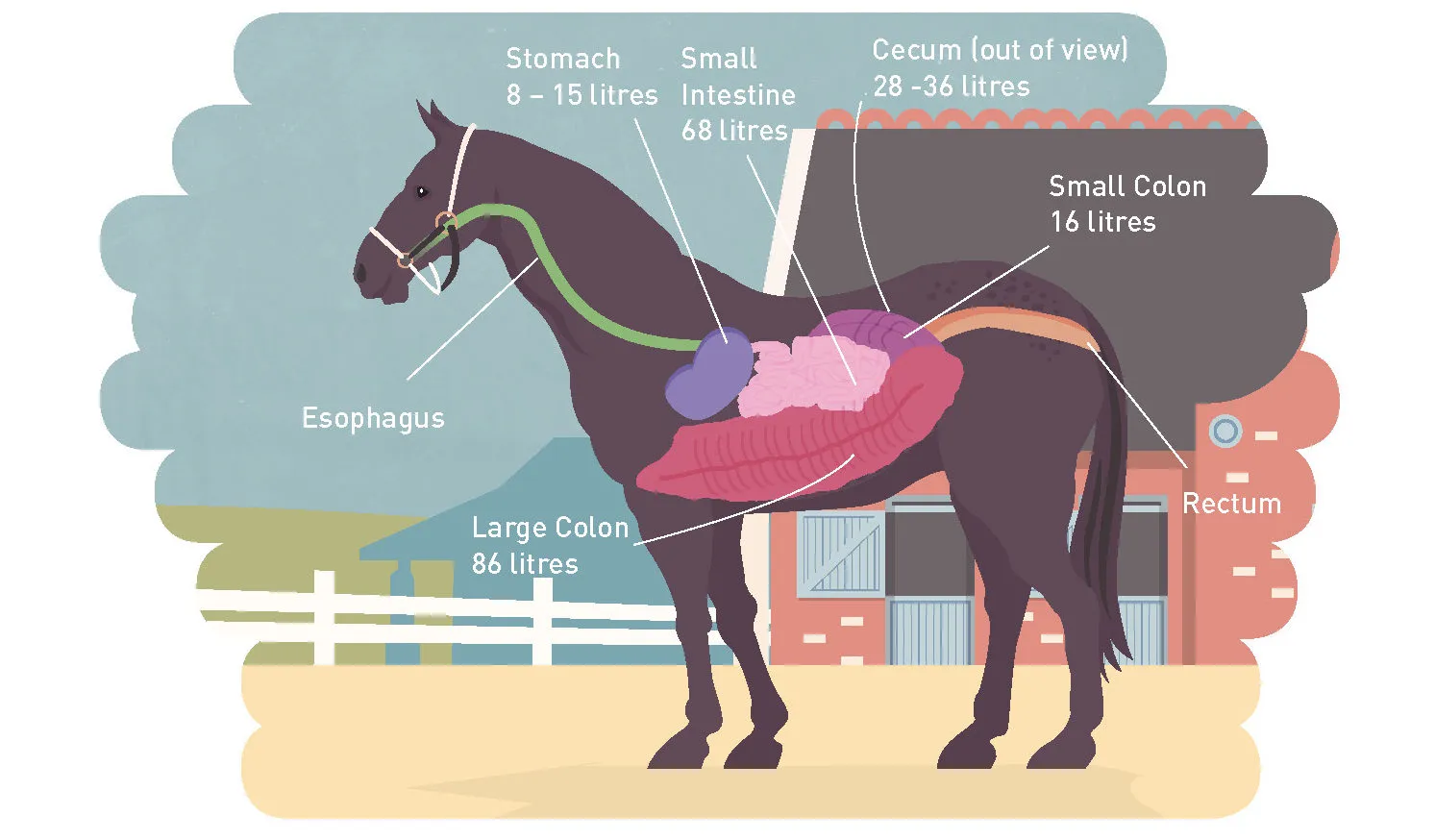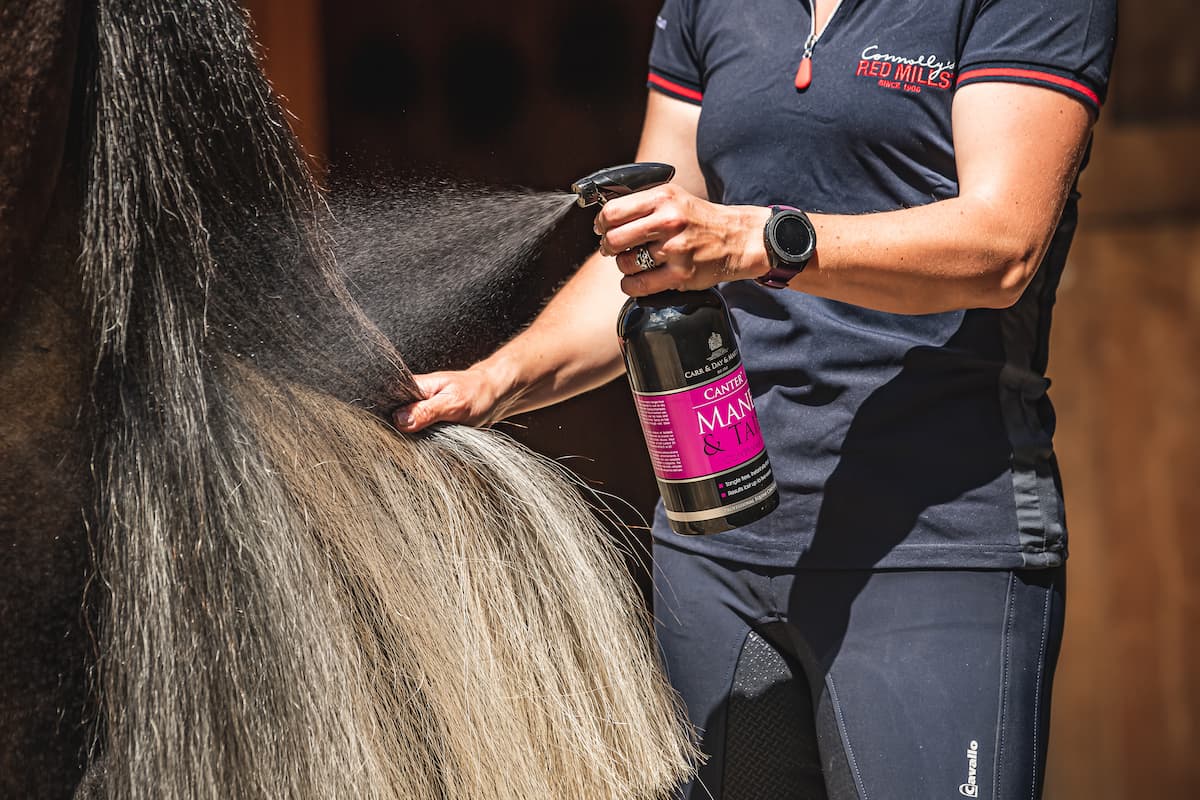As we adjust to plummeting temperatures and long winter nights, some horses will naturally begin to lose condition, as they need to burn additional calories to maintain general body warmth. Whilst for some horses’ winter weight loss is undesirable, for others, particularly those prone to carrying too much weight, winter can be a highly effective tool for weight loss; allowing them to drop off an excess weight gained in the spring and summer as nature intended.

If your horse has a condition score of more than 3.5 out of 5 then they probably need to lose a few pounds. However, it’s important that this happened gradually. To avoid your horse losing too much weight, too quickly, it’s important to check their weight and condition at least every 2 weeks. Condition scoring is particularly important during the winter, as thick, wooly, winter coat can often mask weight loss! If you’re not sure how to condition score your horse, find out more here.

Wet, windy or freezing conditions can make riding less than pleasurable, but exercise is key to helping your horse lose weight. So, even if you can only ride for a short period or loose school your horse in an arena, try to ensure your horse does some form of structured exercise daily.

Consider if your horse actually needs a rug, or could your rug them in a lighter weight rug. By doing this your horse will burn up more calories keeping warm, which will help to kick start weight loss. In some cases, a belly clip may also be recommended to increase the amount of fat burned by simply keeping warm.

Although winter grass is less nutritious compared to spring and summer grazing it can still provide enough calories for good-doers in light work so long as there is enough of it for the horse to eat. However, when grass is limited, as can often be the case when paddocks become poached and muddy during the winter, it will be necessary to provide an alternative source of forage, a late-cut low calorie hay is ideal for good doers. Unfortunately, grazing and hay alone will not provide balanced diet, so all horses will need some form of hard feed. It should also be noted that on sunny, but frosty, winter mornings the sugar content of grass can be high and therefore not suitable for horses prone to laminitis.

Regardless of your horse’s weight, it’s important that they continue to receive adequate forage during the winter. This will maintain digestive and mental health, minimising the risk of problems such as colic and oral stereotypes (i.e. crib-biting). Forage also acts as an internal hot water bottle, as heat is produced when fibre is fermented in your horse’s hindgut.
In some situations, ad lib hay may provide too many calories and as a result it may be necessary to either reduce the amount of calories it provides by choosing a late cut, less nutrient dense meadow hay or soaking the hay to reduce the calorie and sugar content, or both. If this is not effective, then forage intake may need to be restricted. However, this should not be to less than 1.5% of the horse’s bodyweight on a dry matter basis, as feeding less than this amount may lead to issues such as colic, gastric ulceration or oral stereotypes. If forage is restricted, it’s important to slow down intake, meaning that is lasts a little longer. One of the easiest ways to do this is divide the daily amount into a number of portions and feed these in double netted, small-holed hay nets, several times per day.

Forage alone will not provide your horse with optimal levels of all the essential vitamins and minerals they need to stay healthy, and these will need to be provided in the form or a hard feed or multivitamin and mineral supplement. However, when feeding for weight loss, the goal is for the horse to use more energy than calories consumed. Therefore, it’s important to carefully consider the type and amount of bucket feed you provide.
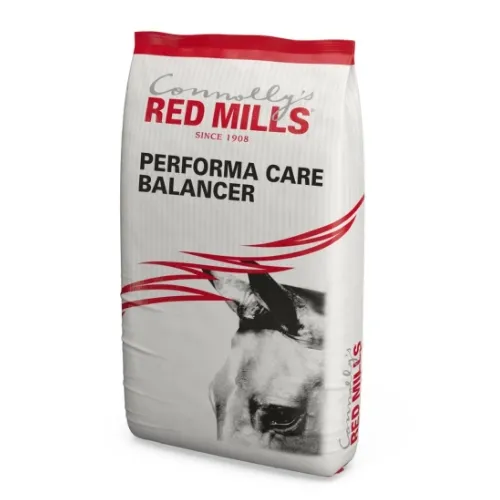
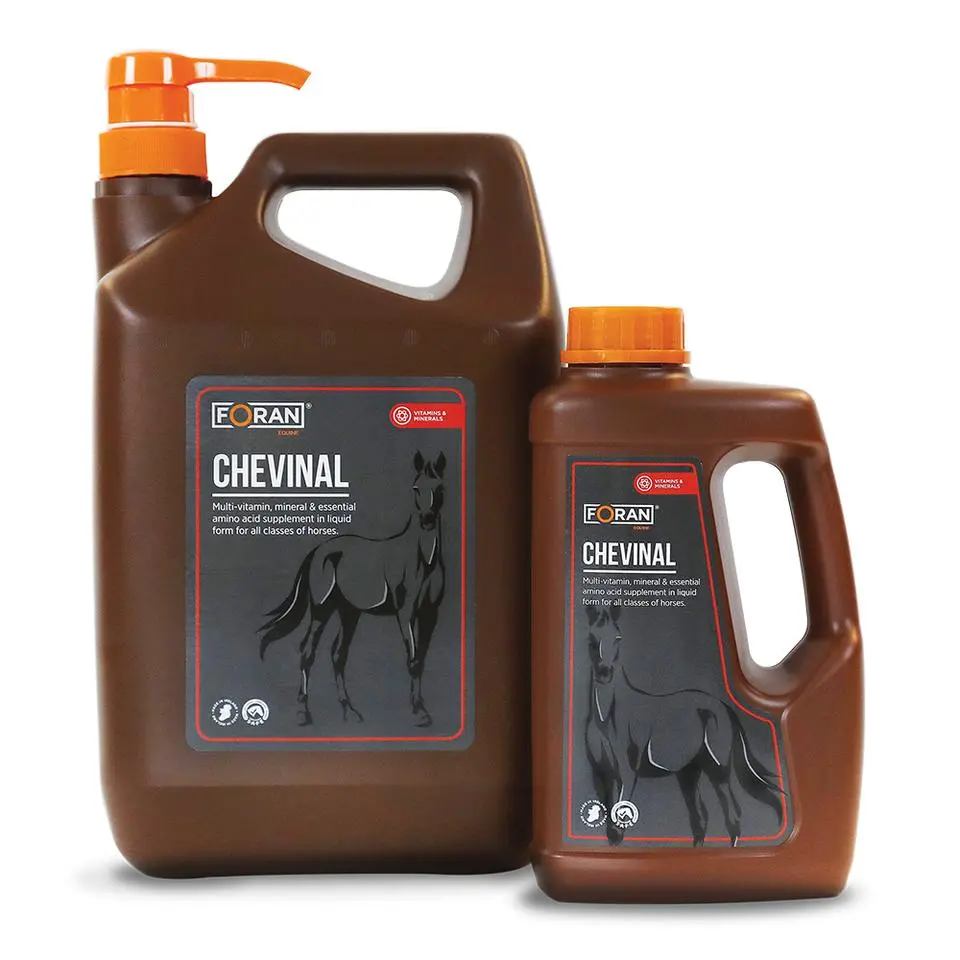
For many horses that need to lose weight, the best solution is to feed Connolly’s RED MILLS PerformaCare Balancer. This nutrient-rich balancer has been designed to be fed at low intake (i.e. 100g per 100kg of bodyweight) and contains limited calories, whilst still providing optimal levels of high-quality protein, essential minerals and vitamins and our unique Care package to support overall health. Alternatively, we recommend Foran Equine Chevinal. This highly palatable liquid vitamin, mineral and amino acid supplement can be mixed with a small handful of feed for a virtually calorie free, yet balanced ration. Read more about feeding the good-doer here.
